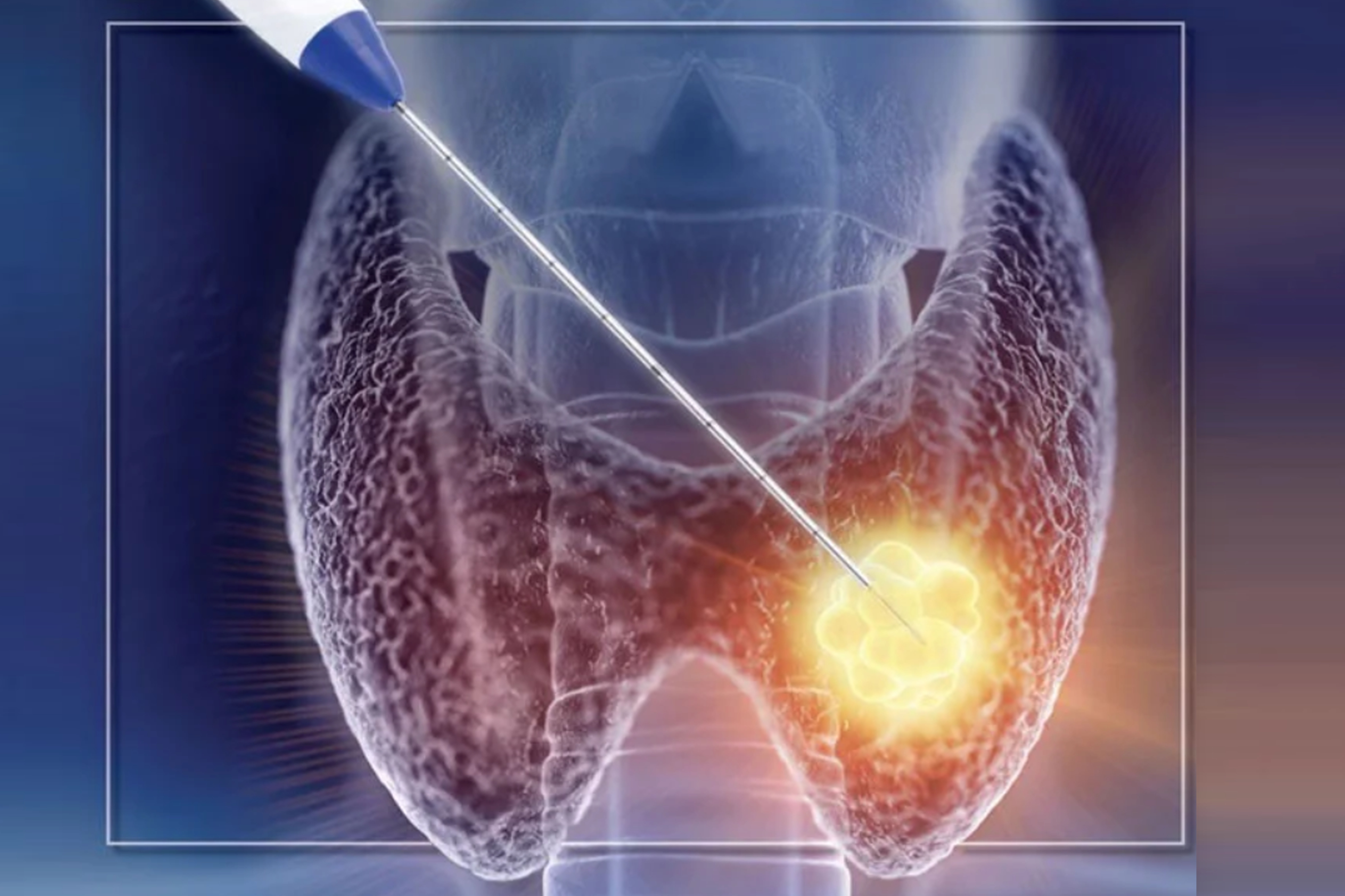Dr. Vaibhav Lende | Vein Treatment Specialist & Vascular Surgeon In Nagpur
Thyroid Ablation

Thyroid ablation is a medical procedure primarily used to treat various thyroid conditions, including hyperthyroidism, goiter, and thyroid cancer. It involves the targeted destruction of thyroid tissue to control overactive thyroid function or to remove residual tissue after thyroid cancer surgery.
RFA is a treatment procedure of thyroid nodules performed a team of endocrinologists. During an RFA, radio waves are utilized to create heat which helps in the shrinking of thyroid nodules. It is not very invasive as surgery or radioactive iodine therapy (RAI).
Purpose and Indications
- Hyperthyroidism: Thyroid ablation can be used when medications are ineffective or inappropriate.
- Thyroid Nodules or Goiter: Reduces the size of the thyroid gland and nodules when they cause discomfort or cosmetic issues.
- Thyroid Cancer: Often used post-surgery to remove any remaining cancerous cells and reduce the risk of recurrence.
Types of Thyroid Ablation
Radioactive Iodine (RAI) Ablation:
- How it Works: The patient ingests a radioactive iodine pill, which is absorbed by thyroid cells. The radioactivity destroys thyroid tissue selectively, as other body tissues do not absorb iodine.
- Procedure: It’s non-invasive and performed on an outpatient basis. Patients may need to avoid certain foods (iodine-rich) before the procedure.
- Effectiveness: Very effective in cases of hyperthyroidism and for residual thyroid cancer tissue.
- Risks and Side Effects: Temporary sore throat, neck tenderness, dry mouth, and occasionally, long-term hypothyroidism.
Thermal Ablation Techniques:
- Radiofrequency Ablation (RFA): Uses heat generated by high-frequency current to destroy thyroid tissue.
- Laser Ablation: Uses focused light energy to heat and destroy thyroid tissue.
- Procedure: Typically performed under local anesthesia; the doctor inserts a needle guided by ultrasound to the target area.
- Benefits: Can be more localized and involves minimal recovery time. Suitable for patients with benign nodules or small cancers.
- Risks: Mild pain, swelling, voice changes, and possible damage to nearby structures (rare)
Pre-procedure Preparation
- Medication Adjustments: Some may need to stop taking thyroid medications temporarily.
- Dietary Restrictions: For RAI, a low-iodine diet is often required.
- Routine Tests: Blood tests, ultrasound, and sometimes a thyroid scan to assess the exact area and extent of ablation needed.
Potential Risks and Complications
- Hypothyroidism: Often an intended outcome in cases of hyperthyroidism or thyroid cancer, as it can be controlled with thyroid hormone replacement.
- Voice Changes: Temporary or rare permanent voice changes due to nerve irritation.
- Swelling and Discomfort: Mild pain or swelling at the site of treatment.
